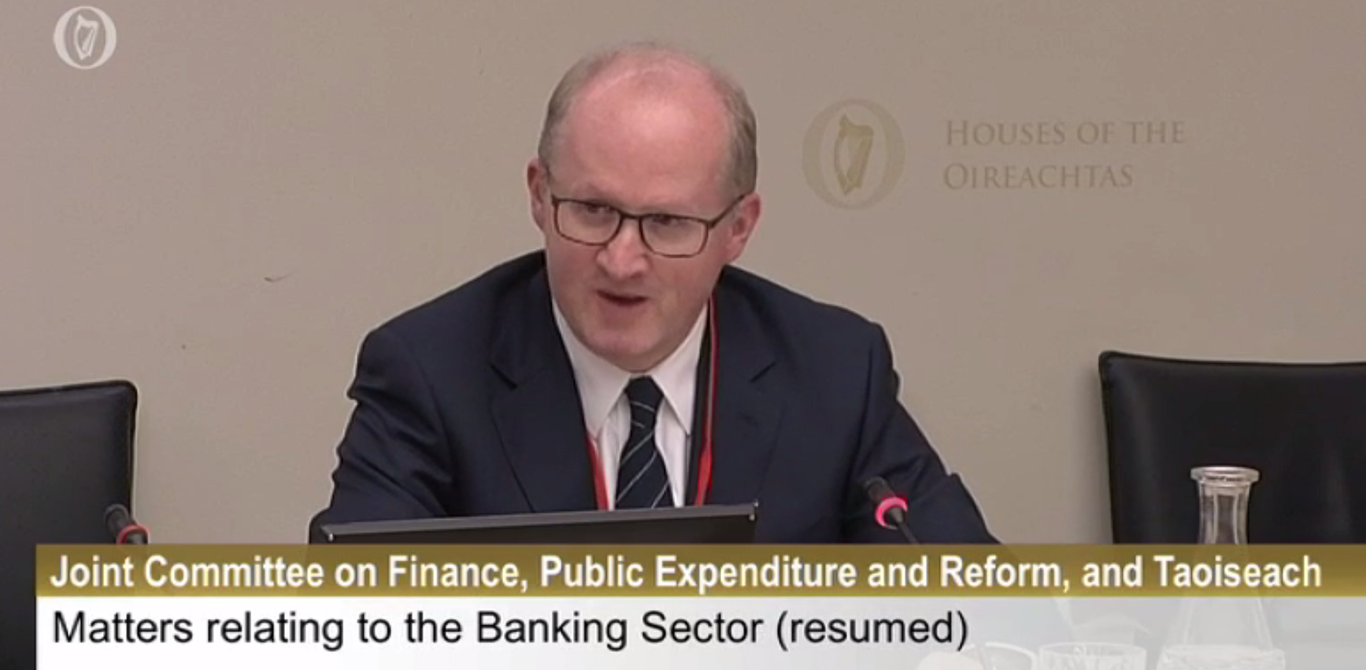'Are you bullied by the banks?': Watch Central Bank governor get grilled on tracker scandal
Philip Lane was being questioned over how many people have been overcharged on their mortgages.
CENTRAL BANK GOVERNOR Philip Lane denied that the organisation he heads up was “bullied by the banks” as he faced intense questioning at an Oireachtas committee today.
The Central Bank said yesterday that around 8,200 Irish mortgage customers who were entitled to a tracker interest rate on their mortgage were denied a right to one, or denied the option of one.
The financial regulator has been looking into the issue since 2010, and wrote to 15lenders last year setting out the framework for its industry-wide probe.
Philip Lane, who was appointed to the head of the organisation in October 2015, was in front of the Oireachtas finance committee taking questions on the scandal today.
The figure of 8,200 mortgages affected by the scandal came under scrutiny from Fianna Fáil finance spokesman Michael McGrath, who queried whether it factored in all publicly known cases such as the 1,400 customers who were overcharged by Permanent TSB.
McGrath said by his reckoning, as many as 15,000 mortgages could have been impacted.
‘Lower band’
Lane said that the Central Bank’s figure has not included all cases of overcharging, and said that “various banks have not completed reviews”.
He admitted that the figure was likely a conservative estimate, and said: “It is a lower bank, we do think that number will rise.”
The lack of certainty on the number was heavily criticised by Fianna Fáil TD John McGuinness, who accused the Central Bank of being “bullied” by Irish banks.
“You should have had those figures ready for the committee. You knew what was coming on here,” he said.
“Are you bullied by the banks? Is the Central Bank able for the banks? I would conclude, from the information that you’re giving and how you’re approaching this, that you’re afraid of the banks.”
This was denied by Lane, who said that there was “zero basis” for McGuinness’s assertion.
“The banks are subject to our extensive supervisory powers. The banks are under an extremely intrusive regulatory regime,” he said.






